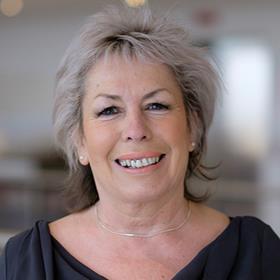With job losses here, budget cuts there and economic uncertainty all around, the post-Covid outlook is tough.

Many of us have weathered some economic tumult already in our careers, and we certainly feel it. But apprentices, graduates and junior members of the workforce are the worst affected and will have the least confidence in their future.
Before the pandemic, the property industry was already crying out for new talent. We recognised that new thinking and more diverse perspectives would help us tackle the big challenges we face. Now, health and wellbeing expertise has become a more urgent priority for building owners and occupiers but it is just one of many specialisms growing in importance. Longstanding concerns including the composition of our urban centres, higher standards of safety and the pursuit of net-zero-carbon targets are still pressing on our sector’s to-do list.
Meanwhile, government interventions to loosen up planning permissions and stimulate development may open more opportunities for growth. Likewise, new technology solutions for building design and construction are coming to market every day, spoiling investors and occupiers with opportunities to improve their buildings for those who need them.

These are all opportunities for those who are prepared – qualified, experienced, curious and passionate – to tackle them. But it is down to us, as leaders and organisations, to support young professionals on that journey. Disruptive as it is, a pandemic needn’t derail nascent careers.
This has been on our minds since lockdown began, as the RICS APC (Assessment of Professional Competence for surveyors) exams loomed for our graduate cohort. A few months later we’re delighted to celebrate a 100% pass rate for them, and a set of lessons learned for us. As anyone who’s been through it can attest, the APC can be a fraught process at the best of times. But pausing office use, rethinking working styles and handling client needs remotely provided a few new challenges on top of this.
Helping young professionals overcome these obstacles required a combination of the right tech, a supportive culture and a degree of personal flexibility.
Previous training programmes may have anchored in training days that required people to travel and be in the same place for workshops, which had its logistical challenges. Now, we’re using our cloud-based systems and video call platforms to make our in-house experts and RICS regional advisers more accessible to the graduates who need them. In lockdown, these sessions became more regular, flexible and bite-sized, complete with recordings distributed for future reference or revision. The result is a boost for the quality and quantity of training overall, and we’ll be developing these more in the future.
But virtual training can’t cover everything. Time on site is necessary to show, not just tell, and shows theory in practice on complex projects. That can be tricky to organise amid social distancing but is possible. For particularly hard-to-access sites, virtual walk-throughs are an alternative too.
As we begin our return to the workplace, our training strategy will blend the virtual with in-person training, including less formal forums. Rekindling an open and collaborative office culture will be important to keep the whole team in touch with ‘live’ insight and advice on our work beyond the technical facts. We learn so much from listening, talking and discussing challenges with our teammates – that dynamic may be more important than planned training. It is possible to simulate those moments virtually, but the office environment already has the answers. A well-planned return to the workplace can bring all those advantages back to our working lives again.
I don’t believe these solutions are overly complex or difficult to implement, and that’s part of why they work. Development programmes that are easy, regular and meaningful are the best way to ensure the next generation is ready to shape a better future for us all.
Christine Keates-Lewis, HR and operations partner, TFT






























No comments yet